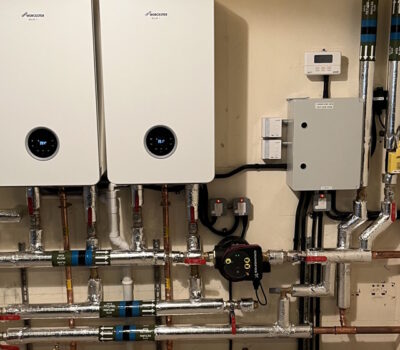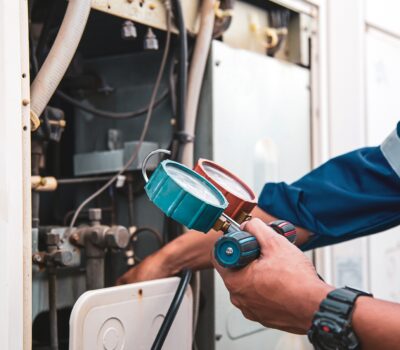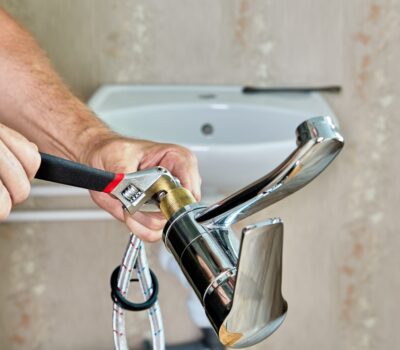
The oil boiler ban of 2026 – how to prepare

Government changes are coming and businesses and homeowners need to check that their boilers fall within government guidelines. With the threat of the oil boiler ban in 2026, now is the perfect time to check that your heating systems are correct – otherwise commercial or personal property owners alike could be out of pocket.
In this blog post, we are reviewing the potential oil boiler ban, what it means for homes and businesses, and how to prepare for the changes.
Why are the regulations around heating systems being changed?
Since 2019, the UK government has been steadily rolling out its net zero strategy, this relates to commercial properties and personal residences alike and provides guidance on how to ensure that carbon emissions are kept as low as possible.
In this bracket, research has found that emissions from domestic settings are on the rise and the majority of this carbon production comes from the use of heating systems – this is especially true for homes that have out-of-date or low-efficiency systems. Likewise for commercial properties and the majority of industry sectors, heating and energy input for machinery is the largest cause of emissions from the industries.
While the government continues to roll out their environmental support plans and oil boiler ban campaign, there are steps that homeowners and businesses must take to ensure that they’re incorporating more efficient systems in their premises as a way to save money and decrease their impact on the environment.
How can I guarantee my heating system is up-to-date?
Different problems require different solutions. The use of energy and the implementation of boilers change depending on the use of the property, as such, it’s important to consider what changes are being made and where.
For home-owners:
Switching out oil boilers or exchanging older models for newer, more efficient ones, is the most straightforward way to ensure you’re aligned with the government’s latest regulations and are on a heating system that is beneficial for your budget and carbon footprint.
With new builds now having the potential to be customised and updated to the discretion of the purchasing party, implementing heat pumps can be beneficial in the long run and is currently the most carbon-neutral heating system on the market. However, be aware that this is a very recent technology so is more expensive than other heating systems.
Electric boilers or renewable heating systems are also an option for those that are removed from government energy providers, such as those living in remote locations or those off the grid. By producing electricity from renewable sources like wind, solar, or water, houses are able to heat themselves without connecting to the national grid.
For businesses:
Large emission output can be difficult for many industries to combat due to the demands of production or maintaining good levels of light and temperature within commercial spaces.
Heat pumps are being rolled out across many industries to keep up with the requirements of production and can be a positive addition to energy-conscious companies working towards their net zero goals.
Ensuring that your commercial boiler is up-to-date is also an important step to take as modern, high-grade boilers are more efficient and can save your business money and improve your environmental rating.
Whickham Plumbing can help upgrade your property
Whether you’re a domestic or a commercial heating user, it is important to ensure that your system is as up-to-date as possible and when it’s time to upgrade, Whickham Plumbing can help!
With 15 years of knowledge across commercial and domestic settings, our team are experts in safe, reliable installations and maintenance that ensure your heating systems are in pristine condition all seasons of the year.
Whickham Plumbing is dedicated to the best customer service and can provide clear pricing from the outset so you’ll be able to budget accordingly and will discuss all of your options with you so you’ll have a clear picture of the process from start to finish.
For a full boiler update for your home or business establishment, get in touch!
Related Articles
20th June 2023
Quality commercial heating installation: a client case study
Here at Whickham Plumbing and Heating Services, we are proud to offer first-class commercial heating installation services
Continue reading »23rd May 2023
Why you should keep your boiler switched on this summer
With the warmer season upon us, focusing on boiler maintenance may seem counterproductive, especially when households and
Continue reading »16th May 2023
Why your factory shutdown is the best time to get on top of facilities maintenance
In order to streamline operations and maximise efficiency in the workplace, it’s important to develop a maintenance
Continue reading »



